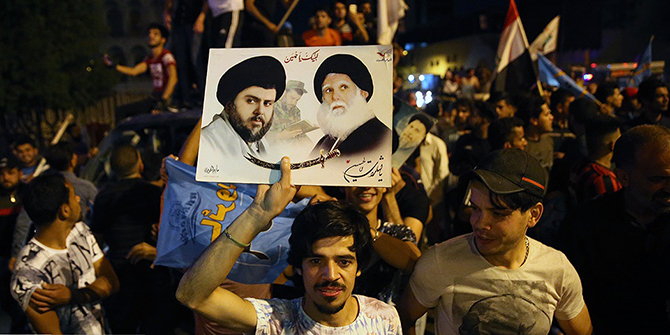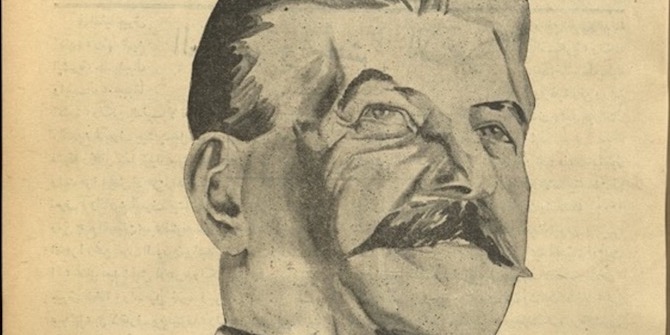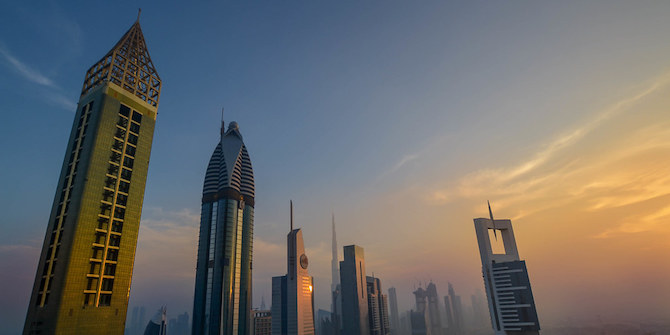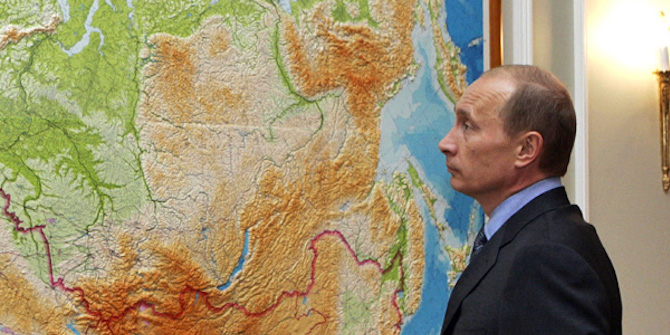by Omar Al-Ghazzi & Abeer Al-Najjar
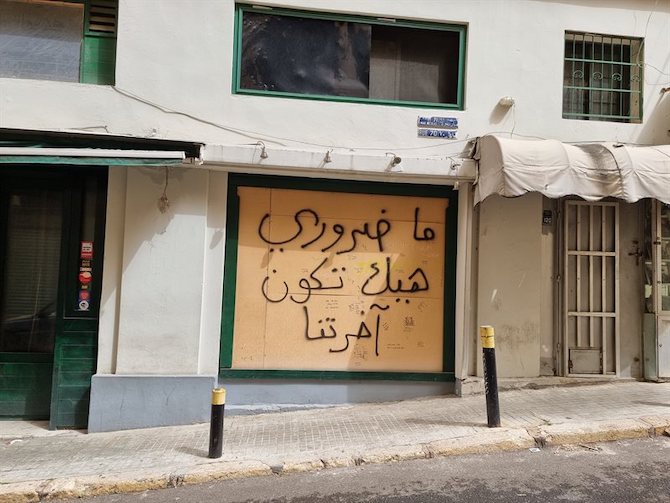
On 20 May 2022, the co-Principal Investigators on an academic collaboration project ‘Arab News Futures’ organised a research symposium on ‘The Future in Arab Media and Cultures’, hosted by the LSE Middle East Centre. The event, one of the first to be held face-to-face at LSE following COVID-19 restrictions, brought together scholars and journalists to explore different facets of the idea of the future as it relates to Arab media and cultures historically and into the present moment.
Recognising that we are living through a cultural and political moment when visions of the future often feel dystopic, speakers engaged with questions such as: what are future trends in Arab media? What media forms and technologies mediate the future, and how? How do we navigate histories of, and past intellectual debates about, political futures? And how do we theorise a fickle concept like the future from the vantage point of the Middle East and North Africa?
The first session, ‘Future Trends in Arab News Media,’ convened journalists and journalism studies academics to reflect on current and future trends in Arab news media and how they developed. The authors, Abeer Al-Najjar (American University of Sharjah) and Omar Al-Ghazzi (LSE), presented preliminary findings from our project ‘Arab News Futures,’ which draws on interviews with Arab journalists and focus groups with Arab students in London and Sharjah. We focused on how Arab newsrooms often integrate communication technologies without a strategic plan or thorough understanding of the impact these may have on journalists and audiences. Zahera Harb (City University) discussed political economy trends in Arab news media, particularly the lack of independent outlets in the region. For their part, renowned journalists Rima Maktabi (Al-Arabiya) and Rasha Qandeel (BBC Arabic) discussed how their careers were impacted by the proliferation of social media and communication technologies and what lessons can be drawn from their experiences.
The second session focused on ‘Imagining Futures in Contemporary Arab Political Cultures.’ Drawing on examples from Egypt, Lebanon, Palestine and Yemen, speakers examined contemporary positions of futurity in political life including themes about the place of the future in relation to anticolonialism, neoliberalism, revolution and counter-revolution. Drawing on interviews with Lebanese artists, Omar Al-Ghazzi (LSE) focused on Lebanon and how futurity has been a consistent state narrative to distract from the past. Sara Salem’s (LSE) presentation focused on anticolonial futurity in comparative African contexts, while Ross Porter (University of Exeter) focused on Yemen’s revolution and the place of the future within it.
The third session was on ‘futurity in history.’ With examples from Morocco, Algeria, Lebanon and Syria, the panel focused on the histories of future imaginaries with case-studies ranging from the 1930s to the 1980s. Collectively, the panel drew on discussions and representations of political futures in novels, magazines, and intellectual thought. Sana Tannoury-Karam (EUME Berlin) talked about the Arab socialist imaginary and the kinds of futures it invoked. Ghenwa Hayek (University of Chicago) presented on how Lebanon’s future is imagined in travel literature from the perspective of its diaspora in west Africa. Moving to North African contexts, Idriss Jebari (Trinity College Dublin) focused on Moroccan cultural theorist Abdallah Laroui and his conception of futurity, while Anne-Marie MacManus (EUME Berlin) examined futurity in Algerian revolutionary and post-revolutionary literature.
With Tarik Sabry (University of Westminster) as discussant, the final panel convened Marwan Kraidy (Northwestern Qatar) and Tarik El-Ariss (Dartmouth College) to reflect on the day’s discussions and how the concept of futurity is positioned in Middle East Studies. The concluding discussion reflected the richness of the concept of futurity and how it can be theorised in the contemporary cultural and political moment. The posts below showcase some of the approaches and insights by speakers on this theme of the future.
This piece introduces a series on the idea of the future as it relates to Arab media and cultures, based on contributions from panellists in an LSE research symposium in May 2022. Read the introduction here, and see other pieces below. For more on the LSE Academic Collaboration project with the American University of Sharjah, ‘Arab News Futures’, see here.
In this series:
- ‘The Future in Arab Media and Cultures‘ by Omar Al-Ghazzi & Abeer Al-Najjar
- ‘The Soviet Union as ‘Future’: the Socialist Imaginary of Arab Intellectuals during the Mandate Period‘ by Sana Tannoury-Karam
- ‘Visiting Lebanon’s Future in its Past‘ by Ghenwa Hayek
- ‘Historians and the Future: Abdallah Laroui’s Prescriptions for a Recovered Moroccan Modernity‘ by Idriss Jebari



